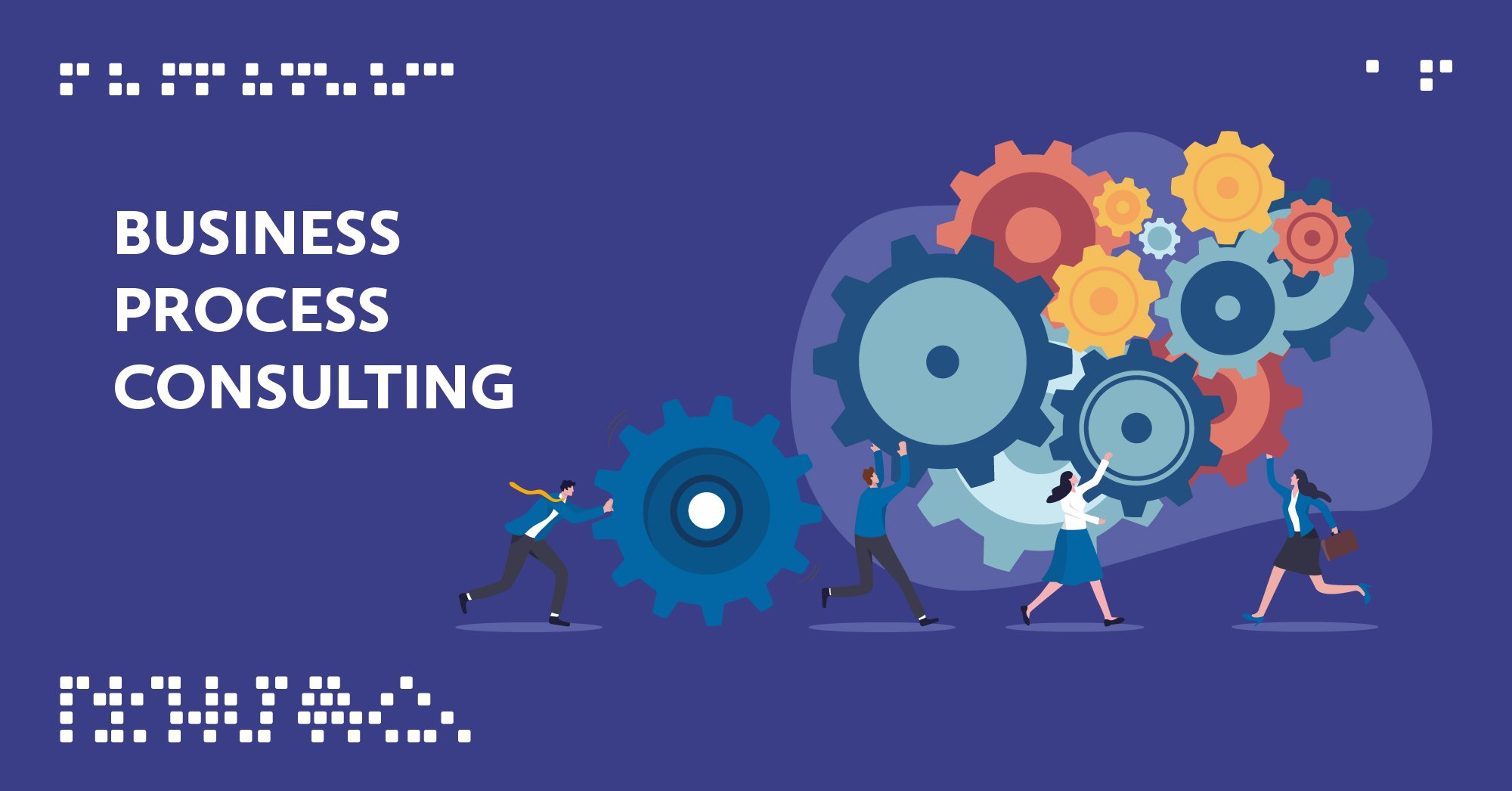Business process consulting involves analyzing, designing, and improving an organization's processes to enhance efficiency, reduce costs, and improve overall performance.
Advanced Business Process Consulting

Lonnie D. Ayers
President and CEO

Business Strategy
At our Business Process Consulting Practice, we understand that in order for businesses to thrive and succeed in today's competitive landscape, they must focus on achieving a competitive differentiation. This is why our approach is centered around business transformation, which is the process of making fundamental changes to a company's operations, strategies, and structure in order to improve its overall performance.
We focus on four key areas:
- Strategic Alignment: By implementing strategic alignment, we ensure that the transformation aligns with the company's long-term strategic growth plans, goals and objectives. Operational efficiency is another key outcome of our approach, as it involves streamlining processes and workflows to maximize productivity and minimize waste.
- Cost Reduction: Cost reduction is also essential, as it allows businesses to lower expenses and allocate resources more effectively. We leverage multiple tools, techniques and methodologies to reduce costs, all while improving your bottom line.
- Optimized Resource Allocation: Optimized resource allocation is the strategic distribution of resources, such as time, money, and personnel, to optimize business performance. By utilizing these key elements, our approach helps you develop a winning business strategy that sets our clients apart from their competitors.
- Operational Efficiency Improvement: Identifying areas where operational efficiencies can be achieved using the deep insights available within your financial statements, business intelligence systems and subject matter experts is a key activity.
Process Analysis
As part of our Business Process Consulting Practice, process analysis is a key activity that we perform to ensure efficient and effective operations for our clients. We utilize various techniques and methodologies such as Workflow Optimization, Process Automation, Process Integration, Process Modeling, and Value Stream Mapping to develop a comprehensive understanding of our client's business processes. Here's a closer look at each of these techniques and how they support the overall concept of business process consulting:
- Workflow Optimization: This involves the assessment and improvement of the sequence of tasks within a process to eliminate bottlenecks and streamline operations. By optimizing workflows, we help our clients achieve increased productivity and cost savings.
- Process Automation: This refers to the use of technology to automate repetitive and manual tasks in a process. By automating these tasks, we enhance efficiency, accuracy, and speed, freeing up valuable time and resources for our clients to focus on more critical activities.
- Process Integration: This entails integrating various systems, applications, and processes to facilitate seamless information flow and collaboration across an organization. Through process integration, we enable our clients to enhance communication, eliminate data silos, and improve overall operational efficiency.
- Process Modeling: This involves the creation and visualization of process maps, which depict the sequence of activities, decision points, and interactions within a process. By developing process models, we provide a clear understanding of the current state of operations, identify areas for improvement, and design more efficient future processes.
- Value Stream Mapping: This technique focuses on mapping the entire value stream of a process, from the moment a customer places an order to the delivery of the final product or service. By visualizing and analyzing each step, we identify opportunities for waste reduction, cost savings, and overall process optimization.
By employing these techniques in our process analysis, we help our clients identify inefficiencies, bottlenecks, and areas for improvement within their business processes. This analysis serves as the foundation for our business process consulting approach, allowing us to provide tailored recommendations and strategies to drive operational excellence and achieve business objectives.
Continuous Improvement
As part of our Business Process Consulting practice, continuous improvement is a key part of our approach. We utilize various methodologies and techniques to achieve this, including Lean Six Sigma, Process Standardization, Process Improvement Plans, Process Reengineering, and Process Innovation.
- Lean Six Sigma: This is a methodology that focuses on eliminating waste and reducing variation in processes. It combines the principles of Lean manufacturing, which aims for efficiency, with Six Sigma, which focuses on reducing defects. By implementing Lean Six Sigma, we can identify and remove inefficiencies, resulting in streamlined processes and improved business performance.
- Process Standardization: This involves documenting and establishing standard operating procedures to ensure consistency and efficiency in business processes. By standardizing processes, we can eliminate variations and reduce errors, leading to increased productivity and quality.
- Process Improvement Plans: These are strategic plans that outline specific actions and initiatives to improve business processes. They involve identifying areas of improvement, setting targets, and implementing measures to track progress. Process improvement plans help us identify areas for optimization and implement changes to achieve continuous enhancements.
- Process Reengineering: This is a radical redesign of existing processes to achieve significant improvements in performance and outcomes. It involves questioning and challenging existing processes and making fundamental changes to achieve greater efficiency and effectiveness.
- Process Innovation: This refers to the introduction of new ideas, technologies, or methodologies to improve business processes. It involves exploring new ways of doing things, leveraging emerging technologies, and adapting to changing market dynamics. Process innovation helps us stay ahead of the competition and drive continuous improvement.
By incorporating these methodologies and techniques into our Business Process Consulting practice, we are able to help our clients achieve continuous business improvements. Through Lean Six Sigma, process standardization, process improvement plans, process reengineering, and process innovation, we can optimize processes, drive efficiency, and enhance overall business performance.
Stakeholder Engagement
At our Business Process Consulting Practice, stakeholder engagement is a crucial aspect of our approach. We understand the importance of involving key stakeholders throughout the business transformation process to ensure its success. Cross-functional collaboration is one of the ways we achieve this engagement. By bringing together individuals from different departments and levels of the organization, we encourage collaboration, knowledge sharing, and a holistic view of the business processes. Governance is another essential component. Through clear roles and responsibilities, decision-making frameworks, and accountability structures, we establish a governance model that ensures effective stakeholder engagement. Stakeholder communication is vital to keep all parties informed and involved. We employ various communication channels and strategies to ensure that stakeholders receive timely and relevant information about the transformation progress. Decision support is provided through data-driven insights and analysis, enabling stakeholders to make informed decisions that align with the overall business objectives. Training and development programs are designed to equip stakeholders with the necessary skills and knowledge to adapt and thrive in the transformed business environment. Each of these components supports the overall concept of business process consulting by fostering stakeholder engagement, driving collaboration, and ultimately delivering successful business transformations.
Performance Management
As part of our Business Process Consulting Practice, improving performance management systems is a key activity that we prioritize. We understand the importance of performance metrics, which are measurable indicators used to assess the efficiency and effectiveness of various processes within an organization. By developing Key Performance Indicators (KPIs), we establish specific targets and benchmarks that help businesses track their progress and make informed decisions. Performance monitoring is another vital aspect of our approach, as it involves continuously observing and evaluating performance data to identify any issues or areas for improvement. By focusing on these aspects, we ensure that improved performance management is achieved throughout the business transformation process. This is a key outcome of our business process consulting practice, as it helps organizations optimize their operations and drive sustainable growth.
Risk Management
As part of our Business Process Consulting Practice, improving risk management systems is a key activity that we prioritize. Our approach involves various tools and techniques to ensure that risk management is enhanced throughout the business transformation process:
- Root Cause Analysis, which helps us identify the underlying causes of risks and develop effective solutions.
- Quality Assurance is an essential component risk management, as it involves monitoring and evaluating the effectiveness of risk management measures to ensure they meet the required standards.
- Regulatory Compliance plays a crucial role in risk management, as it involves understanding and adhering to the laws and regulations that apply to the business.
- Business Continuity Planning is another key aspect, as it involves developing strategies to ensure that essential business functions can continue in the event of a disruption or disaster.
- Gap Analysis is used to identify gaps or weaknesses in current risk management systems and processes, allowing us to develop and implement improvements. Each of these tools and techniques supports the overall concept of business process consulting by ensuring that risks are identified, mitigated, and managed effectively, leading to a smoother and more successful business transformation process.
Technology Integration
At our Business Process Consulting Practice, technology integration is a crucial activity that drives our approach. IT Systems Integration is the process of connecting various IT systems and applications within an organization, ensuring seamless data flow and communication. It allows businesses to streamline their operations and improve efficiency.
Business Intelligence
Business Intelligence refers to the use of data analysis and reporting tools to gain insights into business performance and make informed decisions. Through Business Intelligence, we help organizations leverage data to identify opportunities, optimize processes, and drive growth.
Onboarding New Technologies
Technology Adoption is the process of implementing new technologies and tools to enhance business operations. It involves training employees, optimizing workflows, and ensuring smooth transition and adoption of technology solutions. By guiding businesses through the process of technology adoption, we enable them to leverage the full potential of their newly transformed business. As part of our Business Process Consulting Practice, we ensure that your technology stack can support your newly transformed business. A technology stack refers to a set of software applications, tools, and technologies that work together to support business processes.
Gap Analysis
We carefully analyze your current technology stack and identify gaps or areas of improvement. By recommending and implementing the right technology solutions, we help businesses build a robust and scalable technology stack that aligns with their goals and supports their overall concept of business process consulting.
Business Process Consulting
What is Business Process Consulting?
The goals of business process consulting are to cut costs, increase profits, and provide a better experience for both staff and customers. Depending on the nature of your business and the processes you currently employ, business process consulting might result in simple fine-tuning or a radical overhaul of how your company currently conducts business.
Business Process Consulting Services
Business process consultants help to optimize your current business process and create new ones through strategic planning or redesigning existing ones. How Does BPM Consulting Work? The first step in any business process improvement project is to assess the current state of your business processes. Then they diagnose your current As-Is business process status and ultimately, provide a prescription to update or modify your business processes.
Business Process Management Consulting
For many businesses, the next logical step is to move to an RPO or Remote Process Outsourcing management model. After, the team of Business Process Consultants who just redesigned and optimized your business processes, have both the vision of how it should work and are closest to the problem to make it succeed. Working in conjunction with your internal team, we provide Business Process Optimization Best Practices. That way, you know you're process is being continuously improved.
Robotic Process Automation
The next level Business Process Optimization is to move RPA or Robotic Process Automation. For SAP Customers, our team of AI and ML (Artificial Intelligence and Machine Learning) experts provide advanced SAP Business Process support using the latest SAP tools, such as ChatACS and SAP's generative AI Assistant Joule. For this level of business process automation, a specialized Business Process Consultant will normally be required who is skilled in both your SAP specific Industry Solution, the SAP Application Lifecycle Management (SAP ALM) tools and methodology and have skills with SAP's latest tools.
AI Powered BPM Consultants.
Our BPM Consultants work with both internal teams and external stakeholders (such as customers) in order to understand what needs changing within an organization before recommending changes based on their knowledge of best practices around these topics. Our BOM Consultants use AI and solid business process consulting skills to tailor solutions that strike the right balance of process improvement, process change and technology implementation.
Featured Articles
Project Management
Transformation
SAP BW Tutorial On Stakeholder Best Practices
Strategy
Business Consulting
Balanced Scorecard Strategy Management
Ecommerce
Schedule a Consult
In order to see if we are the right fit for your business, schedule a call with one of our strategists.

Customer Testimonials

Soren Detering, CEO Detering Consulting
Working with Lonnie Ayers of SAP BW Consulting, Inc. has helped me grow my SAP practice to multi 8 figure consulting engagements. I've also become an official SAP Partner and refined and perfected my Sales approach.

Elizabeth Sanjenis
Working with Lonnie was a wonderful surprise in my career. Not only is he a passionate Marketing professional, but a great team member and employee with more than a "can-do" attitude, but rather a "we will" conviction. With his help and strategic expertise in SEO and Inbound Marketing, we were able to improve our website's lifetime visits count from 2.37 million in two years, to 1 million visitors per month. He also helped boost our shopping cart conversion rate from 7 to 13 percent, and implemented YouTube best practices that helped raise our subscriber count from about 1k to 21k, among other multiple contributions, which helped our company reach unprecedented increases in revenue. He is a very powerful addition to any strategic digital marketing team and I sincerely look forward to the opportunity of working with him in the future again.

Simone Bellanova
Working with Lonnie represented for me an extraordinary chance to increase my knowledge into the Airline MRO Operation. Lonnie is great to understand industry trends and issue issues and match those with customer request and advising the customer on who SAP solution provide support. Lonnie is a very proactive professional with an entrepreneur mindset.
Featured in







FAQs
A business process consultant identifies inefficiencies in workflows and recommends strategic improvements, often involving technology and best practices to optimize operations.
It can streamline operations, improve customer satisfaction, lower operational costs, and enhance scalability by aligning processes with business goals.
Virtually all industries can benefit, including manufacturing, retail, logistics, financial services, and IT, especially those seeking digital transformation or SAP implementation.
Business analysis focuses on requirements gathering and documentation, while business process consulting takes a broader approach, targeting overall process optimization and strategy alignment.
This typically includes process mapping, gap analysis, KPI alignment, and solution recommendations—often using tools like SAP Solution Manager, BPMN, or Six Sigma frameworks.
Services may include process audits, redesign workshops, KPI framework development, SAP blueprinting, change management planning, and implementation support.
